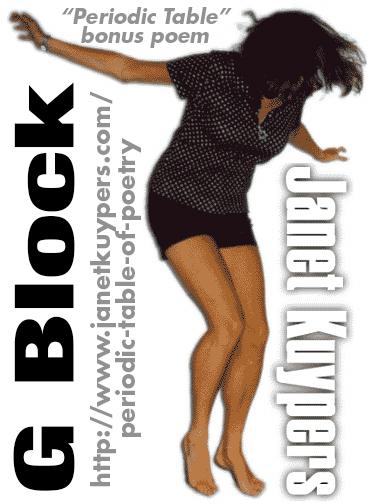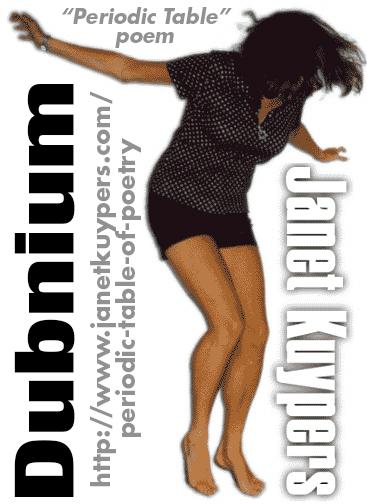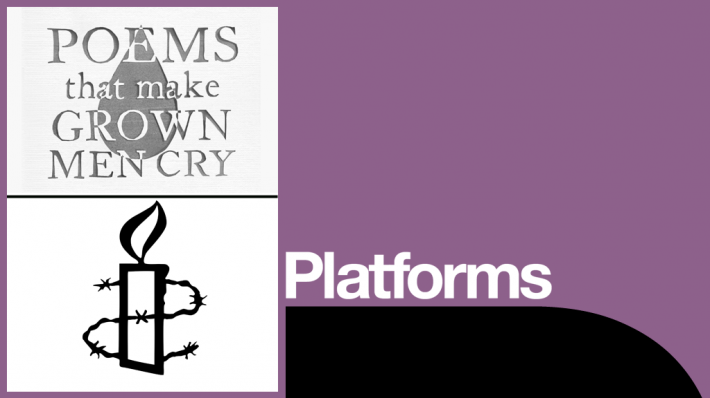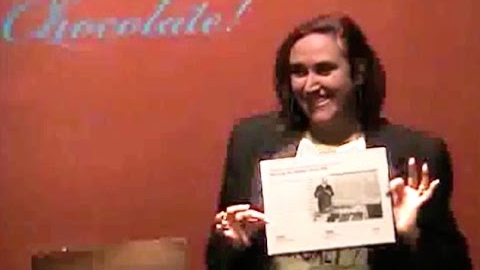
Harry Baker is the current UK Poetry Slam Champion, heading to represent the UK in the Poetry World Cup in June. He is currently Studying at the University of Bristol. He was going to do medicine before all the poetry started kicking off and he thought he wouldn’t have the time to dedicate to his craft so thought he would switch to something ‘nicer’ like German and Maths.
This has led to Prime Number Poems and Bilingual Raps, and instead of a gap year of writing, traveling and performing his time is now taken up with trying to squeeze poetry in every area of his life (including doing his German Oral Presentation in rap form.)
As part of his adventures so far, he has gone from Gangsta Maths to Dinosaur love, with wicked wordplay and rhymes often interspersed with awful puns. A member of last years brilliant Roundhouse Poetry Collective run by Polarbear, he has also performed solo all around the UK and internationally as far as Chicago, New York, Munich, Warsaw and the summer festival Circuit including Bestival, Latitude and Secret Garden Party.
Harry is also currently working towards his second One-Man show at the Edinburgh Fringe (Proper Pop-up Purple Paper People), attempting to build on last years 5-Star Rated ‘Super-amazing Mega-awesome Gap Year Adventures: Birth of a champion’
[tubepress mode=”tag” tagValue=”Harry Baker Poetry” resultsPerPage=”20″ orderBy=”relevance” perPageSort=”viewCount” ]
editor@artvilla.com
robin@artvilla.com
www.facebook.com/PoetryLifeTimes
www.facebook.com/Artvilla.com
poem
G Block, bonus poem from the “Periodic Table of Poetry” series by Chicgo poet Janet Kuypers
G Block
Janet Kuypers

(from the “Periodic Table of Poetry” series, #119-184)
8/31/14
While researching cold fusion
to learn about my latest periodic table element,
I see a sentence to a link for
“Approaches to element 120 (Ubn, unbinilium)”,
and I think,
‘oh no,
this can’t be,
the periodic table only goes to element 118,’
so with dread
I follow the link
and realize
that scientists can’t be happy
with the elements they’ve discovered,
of course not,
so even though there’s no place
in the periodic table
for any new elements…
Well, wait a minute,
if they’re talking about element 120,
there has to be talk about element 119,
so I looked it up, and of course, Uue,
ununennium has a wiki web page too,
so I look at their supposed location
in the periodic table,
and they’re off to the left of the table
in two separate additional rows.
119 is in period 8, the s block,
just like its neighbor, 120.
Whatever that means.
(I mean really, haven’t I
done enough research
on these elements already?)
Oh but wait, they’re just to the left
of Hydrogen, which is also in that s block.
So the periodic table contains four blocks,
the s, p, d and f blocks, giving you
details about the atoms therein.
But then I see a link there
for the “extended periodic table”.
Of course. An extended periodic table.
So I look, and because all of these
are super-heavy elements, the theoreticians
(including Seaborg, who theorized about
many of these now postulated elements)
dropped this new set of twelve
121 and up elements
into the “g block.”
Yes, the g block.
Ask any prisoner in the g block,
and they’ll swear
the prosecution made everything up
to put them behind bars.
I wonder, if all of these elements
are still undiscovered,
how much of these g block elements
are these chemists really making up?
But as far as they can hypothesize, this g block
in the periodic table contains eighteen elements
with partially filled g-orbitals in each period…
I’ve read documents postulating
the first g block element’s at 121
that claim the hypothesized element
126 would be within an island of stability,
resistant to fission but not to alpha decay.
They’ve tried to create 119, 120, 121, 124, 126 and 127,
and some scientists once claimed
discovering an isotope of 122 occurring naturally…
But wait a minute, let me think about this:
if the g block is made of twelve elements,
that would mean the edge of the g block
is element one thirty two, and still
I’ve seen that “extended periodic table”
has Superactinides and Eka-superactinides
listed all the way up to one hundred eighty four.
Razzin frazzin.
Mumble grumble.
Can elements even exist with that heavy a weight?
Isotopes of some synthetic elements
last only milliseconds, and as far as I know,
the only way these super-heavy synthetic elements
can be created is by smashing an atom
with a ton of neutrons into an atom
of a synthetic element (you know, like one
with a half life of only milliseconds).
Can scientists even be able to try
to create these only predicted
super-heavy synthetic elements?
Because it’s really unknown
how far the periodic table extends
beyond the discovered element 118.
But some predict that it ends at 128.
Some predict that it ends at 155.
Some first guessed
that the table couldn’t go past 137,
then later calculated the end was 173.
Oh, razzin frazzin,
with all these guesses
I can’t hear myself a-speechin’…
But I’m not quite sure any of these chemists
are sayin’ the right answers, either,
when everyone can only guess
if any more elements can even be created.
Okay, fine, I’m just a poet
trying to learn a thing or two,
to refresh my memory
on the periodic table
and keep my science know-how up to par.
Maybe I’ll just have to wait
until they actually discover
new elements,
and be content
when they discuss elements
in astronomy and science shows,
when I can actually understand
what they’re saying and think,
“wait, I think I knew that…”
Because okay, I’m only a poet,
but I’ll keep my scientific mind open
and welcom every new discovery as it comes
with open arms.
iframe width=”420″ height=”315″ src=”//www.youtube.com/embed/AO__YKUtE7o?rel=0″ frameborder=”0″ allowfullscreen>
Poems That Make Grown Men Cry. Richard Dawkins et al …
Grown men aren’t supposed to cry. Anthony and Ben Holden, and Kate Allen (Director, Amnesty International UK), introduce readings from poems that haunt a host of eminent men; they explain why, in words as moving as the poems themselves.
With Melvyn Bragg, Richard Dawkins, Ian McEwan, Richard Eyre, Mike Leigh, Simon McBurney, Ben Okri, Simon Russell Beale and Simon Schama.
[tubepress mode=”tag” tagValue=”Poems That Make Grown Men Cry” resultsPerPage=”20″ orderBy=”relevance” perPageSort=”viewCount” ]
editor@artvilla.com
robin@artvilla.com
www.facebook.com/PoetryLifeTimes
www.facebook.com/Artvilla.com
Kate Tempest. Performance & Page Poet.
Kate Tempest (born Kate Esther Calvert, 22 December 1985) is an English poet, spoken word artist and playwright. In 2013 she won the Ted Hughes Award for her work Brand New Ancients.

Tempest first performed when she was 16, at open mic nights at Deal Real, a small hip hop store on Carnaby Street in London’s West End. She went on to support acts such as John Cooper Clarke, Billy Bragg, Benjamin Zephaniah and Scroobius Pip. She toured Europe, Australia and America with her band ‘Sound of Rum’ and worked with organisations such as Yale university, the BBC, Apples and Snakes, The Old Vic and the Royal Shakespeare Company. Tempest has performed at such venues as the Glastonbury Festival, Latitude, The Wandering Word tent at Shambala, The Big Chill and the Nu-Yorican poetry café, where she won two poetry slams. Her first poetry book was Everything Speaks in its Own Way, followed by her first work of theatre, Wasted. At 26, she launched the theatrical spoken word piece Brand New Ancients at the Battersea Arts Centre (2012), to great critical acclaim.The piece also won Tempest the 2013 Off West End Award (“The Offies”) for “Best TBC Production”. Tempest’s influences include Virginia Woolf, Samuel Beckett, James Joyce, W B Yeats, William Blake, W H Auden and Wu-Tang Clan.
In 2014 she released the album Everybody Down (Big Dada), which was produced by Dan Carey and was nominated for the 2014 Mercury Prize.
[tubepress mode=”tag” tagValue=”Kate Tempest Poet” resultsPerPage=”20″ orderBy=”relevance” perPageSort=”viewCount” ]
editor@artvilla.com
robin@artvilla.com
www.facebook.com/PoetryLifeTimes
www.facebook.com/Artvilla.com
Dubnium, poem from the “Periodic Table of Poetry” series by Chicgo poet Janet Kuypers
Dubnium
Janet Kuypers

from the “Periodic Table of Poetry” series (#105, Db)
(8͏23͏14)
Over the years, the U.S. and Russia
have fought over all sorts of things —
thermo-nuclear bombs,
inter-continental ballistic missiles
to carry those bombs,
even getting men into space,
or winning the most Olympic medals,
or even… Making new chemical elements.
You may think of the Cold War
when I mention the U.S. and Russia,
oh, I’m sorry, the Soviet Union,
but you could probably also think
of the Transfermium Wars
where both countries spilled a lot of
ink
in an effort to come out the winner.
Because it was both Dubna in the USSR
and Berkeley California in the U.S.A.
that claimed the discovery of this element,
but after the Cold War, the IUPAC
(oh, don’t make me spell that out for you,
the International Union of Pure
and Applied Chemistry, the group
that decides the names for elements)
said that credit for this discovery
should be shared between the two.
But if the two countries no longer
battled over who discovered it first,
they could at least then argue
over the naming rights for the element…
The Soviets wanted to call it nielsbohrium
for the Danish nuclear physicist Niels Bohr.
The Americans wanted to call it hahnium
for the late German chemist Otto Hahn.
SO, American and Western Europeans
started calling the element hahnium,
while the Soviet Union and Eastern Bloc
countries went on calling it nielsbohrium.
So the IUPAC gave the name unnilpentium
(one zero five, Unp) as a temporary name.
Though the two countries still disagreed
over the naming of this new element,
The IUPAC then decided on Dubnium,
to honor the Russian discovery location.
I think the only reason it got to be named
after Dubna is because America had
so many elements already named for them
(like berkelium, californium, americium),
and if the elements AROUND one oh five
(rutherfordium and seaborgium) are U.S.,
Dubnium can offset the American discoveries.
So yeah, even after all these decades
of competition and mistrust,
a third party had to come in — repeatedly —
to try to settle our squabbles,
kind of like the UN…
But now that we’re got the name
figured out for element one oh five,
maybe now we can learn about Dubnium,
right?
So I did a little research, and lo and behold,
scientists haven’t been able to figure
this element out either.
Melting point? Unknown.
Boiling point? Unknown.
Density? Unknown…
I guess that’s what we get
for battling with the Soviet Union
(well, okay, later Russia)
to try to create a highly radioactive metal
which doesn’t even occur in nature.
Only a few atoms have ever been made,
so I guess our “creation”
is for research interest only.
…But wait a minute, we just created
a radioactive element — should we worry
that if this spreads we’ll turn
into a radioactive planet?
Will our progenitors
be a radioactive species?
Well, that might sound like a thrill
for comic book guy, but Dubnium
is so unstable that it would decompose
so quickly that it’ll never affect humans.
And because of Dubnium’s half life
of half a minute (that’s short, by the way),
there’s no point in even worrying
about it’s affects on the environment either.
So as I said, sorry comic book guy,
but this won’t turn us
into radioactive people
or kill us by radiation…
Hmmm, maybe the United States
and Russia once worked
on trying to blow each other up
with nuclear bombs and missiles,
but when it came to the Dubnium battles
in the Transfermium Wars, maybe for once
we were both working at the same time
on something for science
that will only help us learn.





